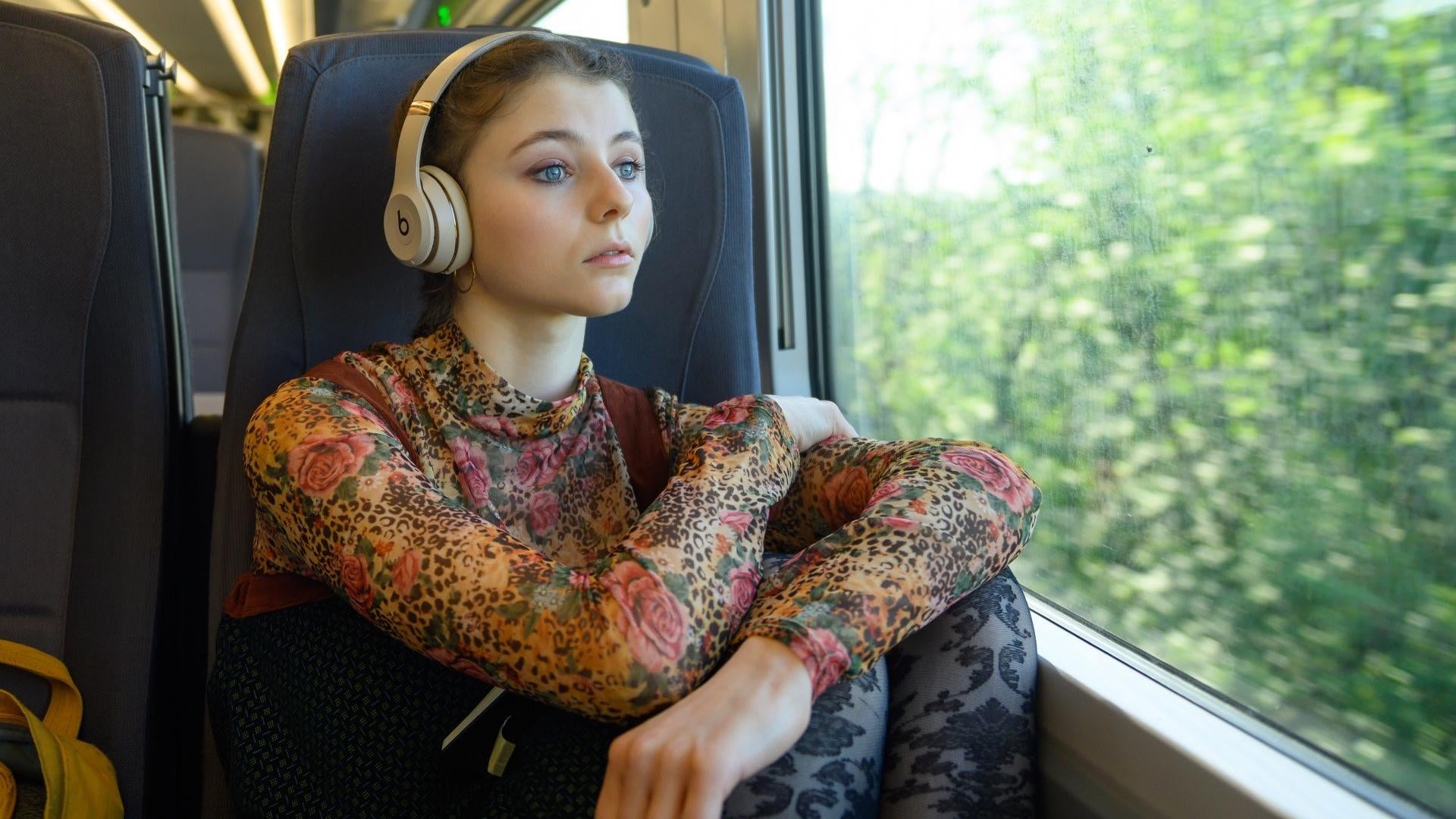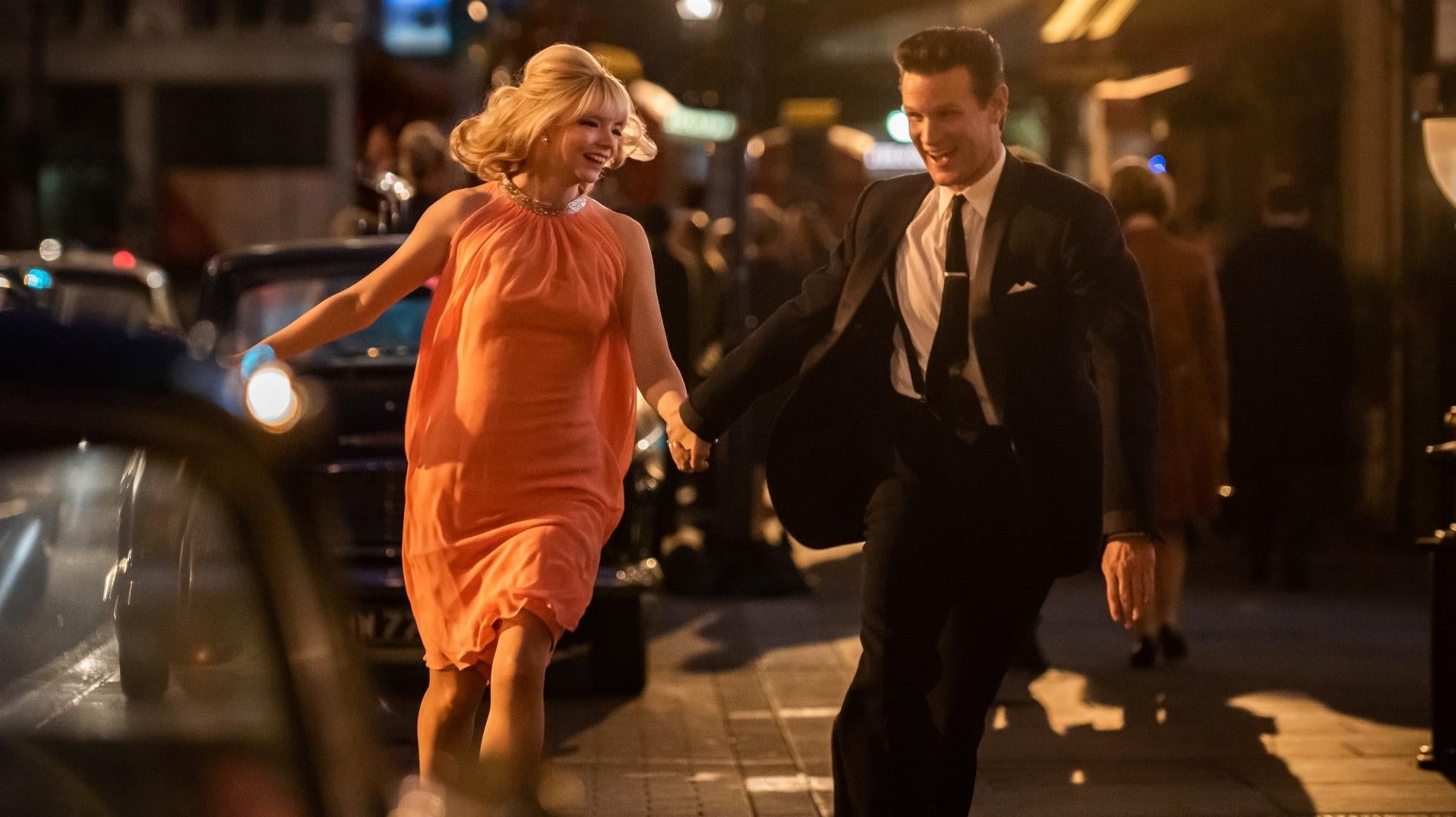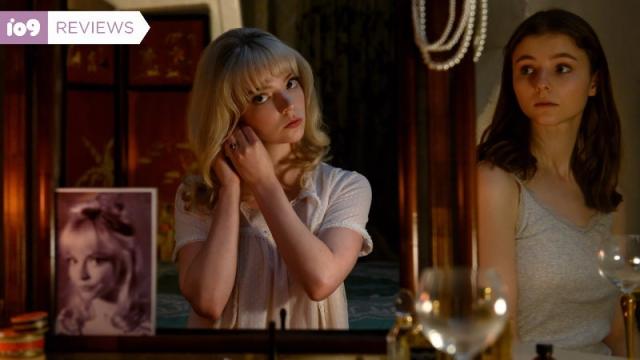Last Night In Soho is director Edgar Wright’s least Edgar Wright film yet. While most of the director’s previous works — including Shaun of the Dead, Scott Pilgrim vs. the World, and Baby Driver — have a tone that’s light, breezy, and fun, Soho is dark, disturbing, and dense. It’s not a film for someone looking to switch their brain off and just enjoy a few hours at the movies, and that’s something that works both for and against it. Luckily, whether the film’s complexities dazzle you or not, they undoubtedly make Last Night in Soho memorable.
Wright also co-wrote the film with Krysty Wilson-Cairns and it stars Thomasin McKenzie as Ellie, a country girl who was just accepted to fashion school in London. Once there she’s quickly marked as an outsider by the chic big-city students and decides to move out of the dorms and into a quiet studio apartment. That space triggers a childhood ability Ellie has to see things that aren’t always real; she’s transported into the past where she becomes and observes a young woman named Sandie (Anya Taylor-Joy). Decades earlier, Sandie too came to the big city to make a name for herself and as Ellie’s visions continue, Sandie’s life gets increasingly upsetting. The women’s worlds then begin to overlap and blur, leaving Ellie in a hell of a mental pickle. Especially once she witnesses Sandy’s murder.

Blending elements of mystery, romance, sci-fi, horror, giallo, and others, Wright has created a wholly unique work with Last Night in Soho. There’s rarely a moment where you have any idea what could happen next. Genre rules are broken, then shattered, then spun off down a different path. The film has an almost jazz-like quality in that way, with Wright sending his characters in directions that often feel random or improvisational. One of the few constants linking everything throughout is a swinging 1960s soundtrack, which consistently pumps life and energy to a story that gets increasingly intense and visceral.
The truths behind Ellie and Sandie’s de-evolution would certainly be considered spoilers and we wouldn’t want to ruin that here, but there are at least two or three twists in the film that both line up with its overall unpredictability but also give it some awkward thematic ambiguities. On a first watch, it’s never quite clear what Wright is trying to say with Last Night in Soho. Arguments could be made about various things, from gender inequality, societal restraints, hereditary mental health, or even the dangers of nostalgia. That deluge of potential themes can, at times, make them all bolster one another, but more often than not they feel at odds. As a result, Last Night in Soho is often less cohesive tonally and narratively than we’ve come to expect from Wright; in the hands of a lesser filmmaker, that could easily be a huge gripe. In Wright’s hands though, this messy concoction of stories, tones, and genres is somehow beautiful. There’s little doubt the randomness is much more calculated than it seems, or is at least done with specific ambiguous intention, leaving audiences with much more to chew on and consider than your basic run-of-the-mill movie.

That’s all anchored by the two leads, played by McKenzie and Taylor-Joy. As Ellie, McKenzie has an incredible bounty of motivations and scenarios to inhabit and bounce off, which she does wonderfully. The character changes throughout but her humanity and vulnerability are always visible deep down, creating a grounded, relatable, emotional performance. As Sandie, Taylor-Joy has to play a little bigger; she sings, dances, and has to do some really messed up things. And yet, in a way similar to McKenzie, it all hinges on a central confidence that’s sometimes obvious, but other times stays just below the surface. It gives her performance a core that Wright then brutally, but effectively, tears apart.
Thanks in large part to those two performances, as well as supporting roles played by the likes of Matt Smith, Terrence Stamp, and even the late Dame Diana Rigg, Last Night in Soho keeps you wholly engaged as it gets weirder and weirder. Wright’s penchant for interesting editing and shot composition is on full display with plenty of jaw-dropping visuals throughout. And while those things help create moments where the whole story seems to fall apart, it almost always comes back together soon after.
By the end, that the film’s unpredictability became predictable left me liking Last Night in Soho more than I didn’t, but there was conflict in my reaction. No, it doesn’t all make a ton of cohesive sense. Yes, there are some very questionable decisions along the way. But all of those things helped the movie latch onto my brain like a parasite, urging me to think about it and making me want to watch it again. Any movie that can create that type of connection, even if it’s a little confused and muddled, is pretty darn remarkable. And so it is for Last Night in Soho.
Last Night in Soho is in theatres on November 18.
